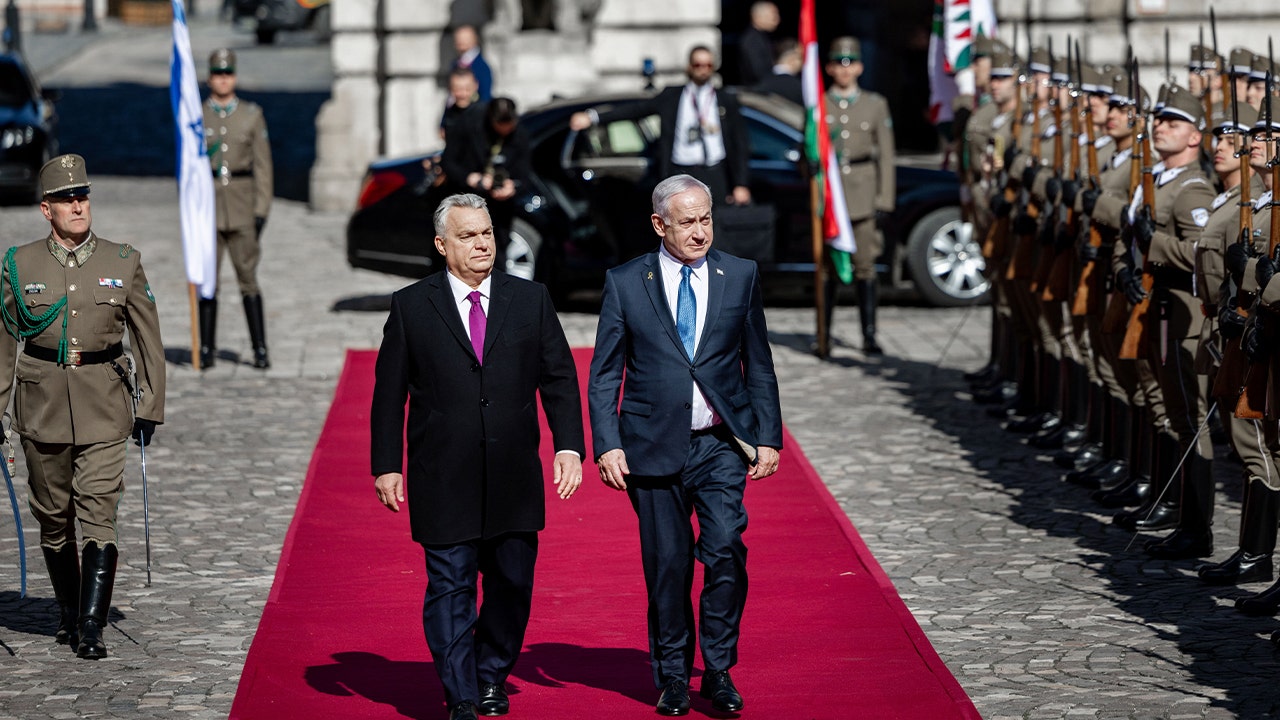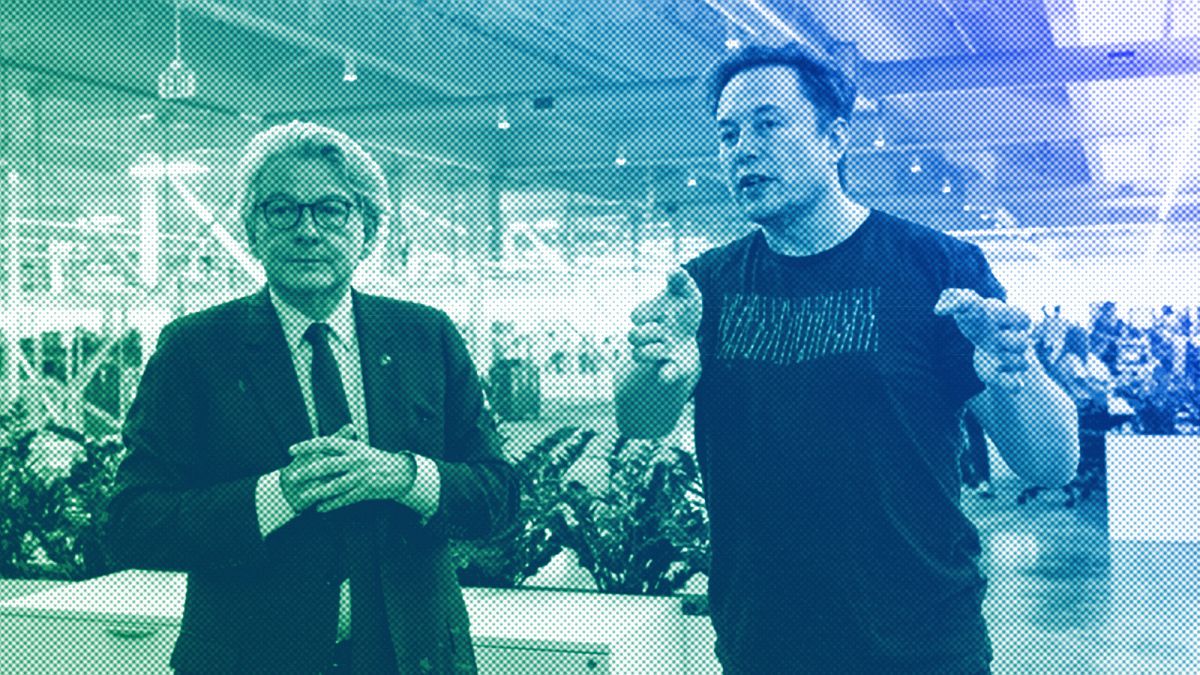The opinions expressed in this article are those of the author and do not represent in any way the editorial position of Euronews.
The limit between foreign meddling and freedom of speech in a world of modern communications – a question that will determine the future of Europe, MEP András László writes.
Recent statements from Elon Musk about the domestic politics of several European countries have raised many eyebrows. He is accused of meddling in the politics of other countries simply for speaking his mind. But where is the limit between foreign meddling and freedom of speech in a world of modern communication? It is a question that will determine the future of Europe.
Sovereignty is sacred. Or at least it used to be. Non-interference in the domestic affairs of another country has been a red line for a very long time, especially when it comes to elections. Red lines used to be easy to determine. However, in the digital age where social media, online portals and group chats are easily accessible through our smartphones, interaction between individuals is swift across the globe. Even the language barrier can be overcome with translation available immediately with the push of a button. With new AI tools, even audio dubbing of videos is merely a matter of minutes.
People are not only able to read but also react to what is going on the other side of planet almost instantly. Despite the many benefits of modern communication, technology has also blurred the red lines and rightfully raises the question of what constitutes foreign interference.
This is particularly the case in the EU where Member States have decided to lend some of their sovereignty to be exercised together in hope of peace, prosperity and finding common answers to international challenges. It relies on trust and good faith among all players. This is where the EU is failing and this puts the entire European project at risk.
Hungary, my country, has been the testing ground for different forms of foreign interference in our domestic politics. But other countries, like Italy or Poland (and they are just the most notable examples), have also witnessed direct or indirect interference. The approach of the EU elites varies but bias against conservative governments is very apparent.
At the last national elections in 2022, a wide range of tools were at play in Hungary. The leftist parties ran on a single list and put forward joint candidates in the constituencies, too. (They even took the racist and anti-Semitic Jobbik party on board.) They also chose a single joint prime minister candidate to challenge our party, Fidesz and Prime Minister Viktor Orbán.
The organization used to finance and promote their campaign, as well as other organizations linked to the political left and leftist media, received 10 million US dollars from abroad. The larger chunk of the money came from the United States, and a smaller sum was transferred from Switzerland. Foreign financing of election campaigns is illegal in Hungary. The operatives on the receiving side have been trapped in a spiral of lies ever since in a desperate attempt to dodge legal consequences.
Despite the obvious interference from outside the EU, EU institutions never raised their voice. In Hungary, the scandal shook the entire left. Surveys showed that even the majority of left-leaning voters disapproved of the foreign financing of the campaign. Hungarians wanted measures to prevent such massive foreign interference from ever happening again. When the Hungarian parliament adopted the sovereignty protection law to create tools to counter such influence, the EU finally took action. But instead of providing assistance, the European Commission sued Hungary and demanded that we withdraw the law. More transparency on foreign political financing is clearly not in the interest of the European Commission.
Interference using financial means is also remarkable when it comes to EU funding. The European Commission president announced only two days after the elections that it will trigger the mechanism for freezing of Hungary’s EU funds. Was it delayed in hope of the left winning and to avoid blocking them from quick access to the funds?
The Polish example certainly suggests so. When the conservative government lost the majority after the elections, Ursula von der Leyen was quick to invite Donald Tusk, the new prime minister to Brussels to announce the release of Poland’s EU funds. The European Commission’s rule of law concerns evaporated at the mere promise that Tusk’s government would tackle the rule of law concerns of the Commission, before any laws were amended.
Italy also found itself blackmailed, as Ursula von der Leyen publicly hinted at freezing Italy’s EU funds, merely days before national elections were held in Italy as the conservative alliance was poised to win. Coincidence or interference?
Direct foreign media subsidies also didn’t pass the foreign interference threshold. The US Embassy in Hungary launched a tender in late 2023 to finance Hungarian media outlets. The beneficiaries were publicly posted with the seal of the embassy and the sums received by each outlet. A total of fifteen outlets, several with a national and a few with regional focus, were chosen for funding, all of which have a clear anti-government bias.
But Ursula von der Leyen and Manfred Weber also used the European Parliament’s plenary debate about the Hungarian EU presidency to name their choice for the next prime minister of Hungary. They have previously used their influence to financially sanction and politically pressure Hungary. European leaders and media voiced no concerns.
Now, as Elon Musk calls out failed leadership in European countries, all of a sudden many claim it is foreign meddling. Some call for an official inquiry committee to be set up. Even though Musk has no capacity to freeze billions of EU funds, unlike von der Leyen when she intervenes in the domestic politics of Member States.
Last but not least, the elephant in the room: George Soros. There is no greater contrast in the way EU elites react to Elon Musk than comparing it to the way they treat the American-Hungarian left-wing billionaire. Soros has been commenting on European politics for decades and making direct policy recommendations from taking in millions of immigrants to taking up more debt or depriving the governments of Poland and Hungary from EU funds. No one in Brussels called it foreign meddling, instead the European Commission delivered on more immigration, more debt and the freezing Hungary’s and Poland’s EU funds. Soros has leveraged billions of dollars to get his way and yet, or perhaps for this very reason, he was often received at the highest levels by EU leaders. The European Commission even outsources the drafting of rule of law reports to and seeks policy advice from organizations funded by George Soros.
The European integration process was started to bring lasting peace and prosperity to the European continent. Through building trust via dialogue and cooperation based on mutual interests and respect. The EU has lost its way. Instead of giving up on the European ideals of peace, prosperity and mutual respect, we need to make Europe great again. It starts with refraining from interference, and respect for the democratic choice people make at elections.
András László is a Hungarian MEP, member of the ruling Fidesz party and president of the Patriots for Europe Foundation



